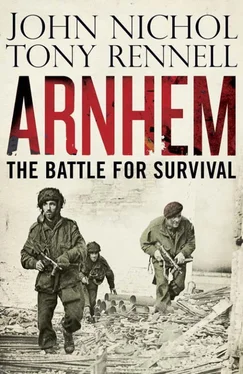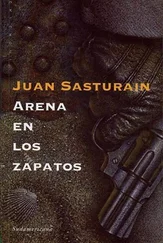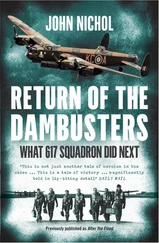And now these men were coming home. They had gone to Arnhem one Sunday with hopes of being back in the pub by the weekend. After eight months of incarceration when they were half-starved, poorly treated, demoralized and never sure they would ever see home again, they were flying in from camps in conquered Germany. Wives were waiting. After a whirlwind romance that began in a Woolworth’s tea bar, eighteen-year-old Lola Ayers had married her airborne sapper husband Arthur a fortnight or so before he flew to Arnhem. On her own admission, they didn’t know very much about each other. They hadn’t had time. And then he had gone back to his unit, and she had heard not a word from him or about him from the beginning of September until sometime in October, when an official letter came saying he was missing in action in north-west Europe. She had had no idea if he was alive or dead. She was living with his parents through this terrible time of not knowing, and sharing the agonies with his mother. ‘She was finding it very difficult because he was an only child. She was very, very worried.’ Lola got on with her work in the ATS. ‘I didn’t really know what else to do.’
Their Christmas present that year was a card from Arthur telling them he was a prisoner of war. It came from Stalag 4B in eastern Germany and was addressed to ‘Mrs A. Ayers’ with a ‘jun’ [for Junior] tacked on the end of the name to signify his wife rather than his mother. ‘My own darling wife,’ she read. ‘Just a few lines, sweetheart, to let you know I am OK and well. I am waiting patiently for that day to come, darling, when we will make up for all this time we have been parted.’ Lola was thrilled. ‘It was such a joy to know that he was alive.’ Behind the barbed wire, he was comforted, too, by the letters he got from home. ‘They gave me a wonderful feeling as I absorbed line after line of their neat handwriting,’ he recorded in his diary. ‘I felt close to them. Each scrap of news was treasured in my memory, to be remembered again in the days to come.’
He released himself, slipping away from a column of British prisoners as they were forced by the Germans to march away from the advancing Allied front. He stayed hidden and was liberated by American troops. There was no chance to telegram to say he was coming home. ‘He just arrived in the middle of the night,’ Lola recalled. It was a low-key reunion, as so many were. Returning prisoners and their loved ones could be like strangers, made awkward rather than emotional by long absence. ‘I asked if he wanted anything and he said yes, a tin of condensed milk! He wanted to spoon it out and eat it straight away. He looked like a skeleton – about 7 stone. We were just so relieved to have him back.’ For Arthur, the moment had huge significance. ‘Walking back into the arms of my wife signalled the end of the war’ – and of the Arnhem operation – ‘for me. I got back on with my life. I don’t think I was affected by what I’d seen and done. I just did my duty, as everybody else was doing.’
Ron Brooker hobbled home from his eight months as a prisoner after being shot in a failed escape attempt. There was a disappointment awaiting him. ‘I’d had a girlfriend from the time I was at school, and though I’d never even kissed her, she was my girlfriend. While I was a prisoner I’d been working out how much money I was saving and that I’d be able to buy a bed, furniture, crockery, things like that. I was planning for the future. After I got home I went round to her house and I said, “Look, Joan, I’m not messing about, I’m hoping to get married,” and she said, “So am I, I’m getting married tomorrow.” And she did. She married a Canadian soldier!’ But, that setback apart, getting home and being reunited with his family was marvellous. ‘My mum was over the moon, and it was all really an emotional reunion because Dad was home on leave too. All of the brothers survived the war.’ As for the Arnhem experience, however hard it had been, however many mates he had lost, however many horrors he had witnessed, ‘they were some of the happiest days of my life. I still think it was all well worth doing. I’m proud of my contribution. The best times of my life but, obviously, some of the saddest and frightening times as well. But I wouldn’t have missed Arnhem for the world.’
For Dutch civilians caught up in the battle, Arnhem would also be a highlight of their lives, and unforgettable in more ways than one. Nurse Heleen Kernkamp’s daughter, Marga, remembered being out walking with her mother many years afterwards when some planes flew low overhead. ‘She ran for cover behind a wall.’ Survivors like her rarely talked about their experiences, but Heleen wrote hers down as a way, daughter Marga explained, ‘to get rid of them from her soul’. It was only when Marga read her mother’s account that she grasped the enormity of what the older woman had seen and done. ‘She was a hero, and we, her children, never knew it. When I read her diary, I did not even recognize her. I saw that what she did among all that suffering and death was incredible. As a nurse, she was needed, and she thrived on that. It was a crazy, dangerous time, an incredible challenge that she passed with flying colours. But she never had the chance to live on the edge like that again. Arnhem was her high point. She never bettered it. She went on to become a well-known writer and translator and won awards for her work, but she never felt she achieved again what she achieved at Arnhem, and I think she regretted that.’
Back in England, Andy Milbourne would have Arnhem hanging over him for the rest of his life. He had permanent mementoes – both arms cut off below the elbow and an empty eye socket. He’d been firing a heavy machine gun from the back of a jeep, covering the retreat from Arnhem to the Oosterbeek perimeter, and took a direct hit from a mortar. An appalling time followed in a German-run hospital, where his arms were amputated. He managed several months in Stalag XIB at Fallingbostel, but his wounds were so severe that he was repatriated in a prisoner exchange early in 1945. He had left the camp with the words of an old mate ringing in his ears – ‘What’s your mother going to say?’ He was about to find out. As he sat in a Red Cross ambulance driving him to his home in Alnwick, 30 miles north of Newcastle, the reunion with his mother was not the only reason for the gnawing feeling in the pit of his stomach. He was feeling angry and sorry for himself. In Germany, he had had months to think about the future of a working man with no hands. He’d been noted as a boy for his long fingers – ‘piano fingers’ someone had said. ‘Given to me by God, now taken away by a mere mortal,’ he told himself, with real bitterness. ‘Now what? Who’s going to employ me?’ In his head, he had written himself off after a child at the railway station had stared in fascinated horror at his empty eye socket and a woman in a pub had been hysterical at the sight of his missing arms. But now, as the ambulance drew up outside number 12 St George’s Crescent, the moment had come to face his loved ones. He was angry when the driver sounded the horn, hating the attention that was being drawn to him. ‘Why the hell didn’t they have a fanfare of blasted trumpeters too? Then the whole street could turn out to gawk at the armless and one-eyed freak.’ The ambulance doors opened and there was his father with a broad smile on his face and offering to lift him down. ‘Get out of the way!’ snapped the young Milbourne. ‘Do you think I am that bloody helpless?’ The older man looked hurt then walked away, calling behind him to his son, ‘Carry on, soldier!’
‘I jumped down and made my own way to the door, where two of my aunties were standing. “Here comes the hero,” one of them said. They tried to keep their eyes on my face, but instinctively they looked to where my hands should have been hanging. Both began hugging me, but I had nothing to hug them back with except a pair of flapping, empty sleeves.’ His mother grabbed him next, ‘and kissed me until I thought I would faint. I could have screamed and, if someone hadn’t given me a cigarette, I’m sure I would have done.’ A table was groaning with food and a cake with ‘Welcome home’ iced on it. He sat down and his mother offered a morsel to his mouth. ‘Now don’t be shy,’ she said. ‘I’ve done this before when you were a baby!’, and he was mortified. ‘Those words were said in all sincerity and with a mother’s true love for her son. But was I to be fed like this for the rest of my days? Was I to be washed, shaved, then taken for a nice walk? Was I to have those intimate parts of my body touched by her hands as she had had to do when I was little? And would my father always be on hand every time I wanted to urinate?’ He looked around the circle of concerned family faces. ‘As I met their gaze, one by one they dropped their eyes, and pretended that they were not paying me the slightest attention.’ Milbourne erupted. ‘Take all this food away,’ he roared. ‘I don’t want it.’
Читать дальше












